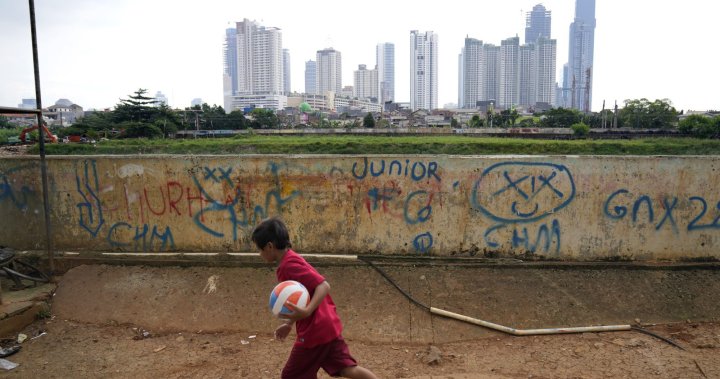
Indonesia moves ahead with plan for new capital to replace sinking, polluted Jakarta
Global News
President Joko Widodo envisions the construction of a new capital will allow the country to start fresh with a "sustainable city" free of the problems plaguing Jakarta.
Jakarta is congested, polluted, prone to earthquakes and rapidly sinking into the Java Sea. Now the Indonesian government is leaving, and moving the country’s capital to the island of Borneo.
President Joko Widodo envisions the construction of a new capital as a panacea for the problems plaguing Jakarta, reducing its population while allowing the country to start fresh with a “sustainable city” that has good public transportation, is integrated with its natural environment and is in an area that’s not prone to natural disasters.
“The construction of the new capital city is not merely a physical move of government offices,” Widodo said last week ahead of parliament’s approval of the plan. “The main goal is to build a smart new city, a new city that is competitive at the global level, to build a new locomotive for the transformation … toward an Indonesia based on innovation and technology based on a green economy.”
Skeptics worry, however, about the environmental impact of plunking a sprawling 256,000-hectare (990 square mile) city down in Borneo’s East Kalimantan province, which is home to orangutans, leopards and a wide array of other wildlife, as well as committing $34 billion to the ambitious project amid a global pandemic.
“The new capital city’s strategic environmental study shows that there are at least three basic problems,” said Dwi Sawung, an official with the WALHI environmental group.
“There are threats to water systems and risks of climate change, threats to flora and fauna, and threats of pollution and environmental damage,” she said.
First proposed in 2019, Widodo’s plan to establish the city of Nusantara — an old Javanese term meaning “archipelago” — will entail constructing government buildings and housing from scratch. Initial estimates were that some 1.5 million civil servants would be relocated to the city, some 2,000 kilometers northeast of Jakarta, though ministries and government agencies are still working to finalize that number.
It will be located in the vicinity of Balikpapan, an East Kalimantan seaport with a population of about 700,000.













